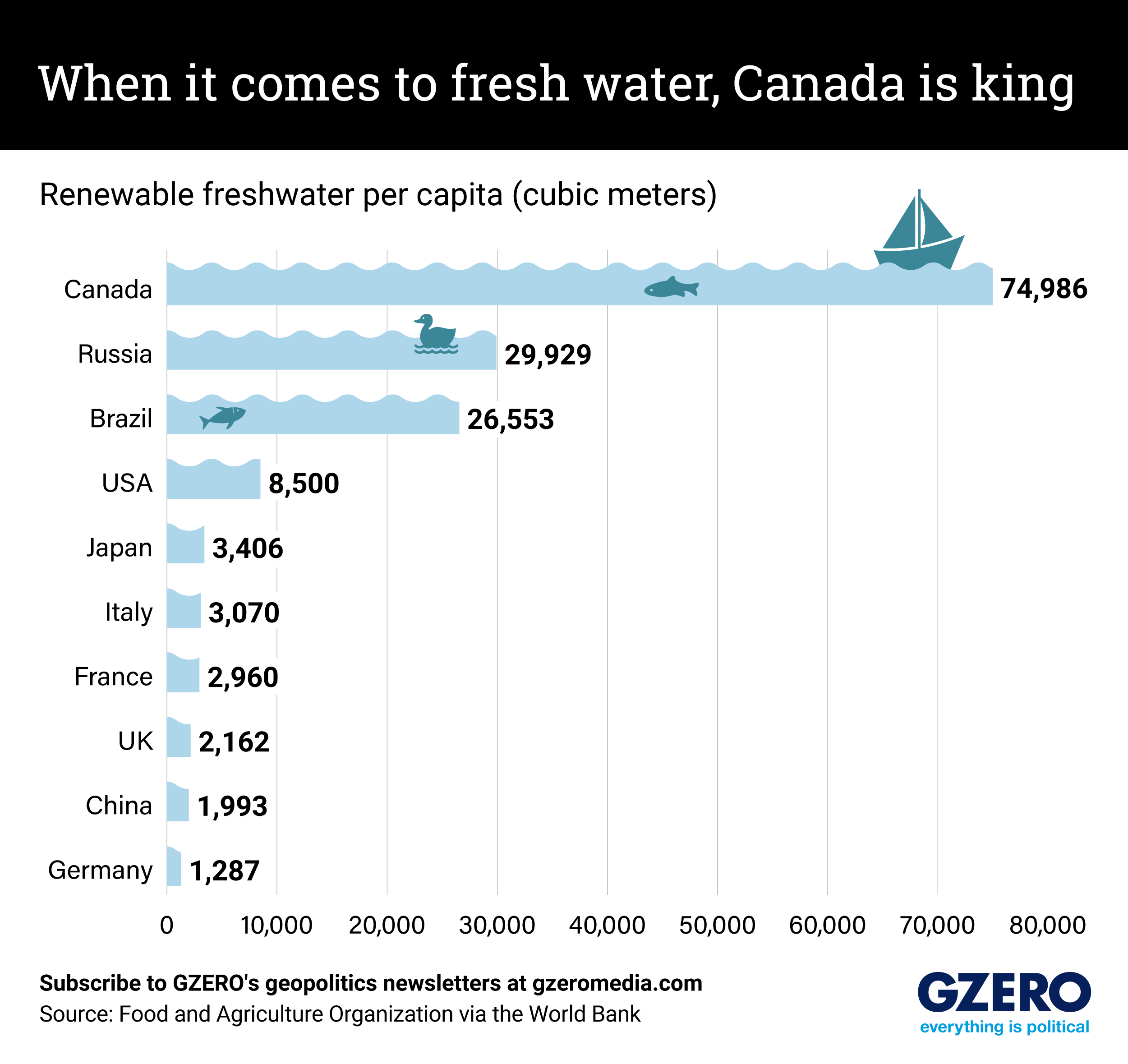Water covers 71% of the Earth’s surface, but good ol’ H2O is a much more precious resource than it appears.
Less than 0.8% of Earth’s water is freshwater in lakes, rivers, or underground aquifers. And much of that already tiny fraction has been rendered unusable by pollution or is lost to poor management and inefficient agricultural practices. What’s worse, climate change and overexploitation of existing water resources mean that communities from California to Cambodia are struggling to provide safe water at an affordable price.
The good news for Canadians is that they have an absolute abundance of fresh water, more than 74,000 cubic meters of renewable water per person – enough for each to fill 20 Olympic-sized swimming pools!
It far outstrips peer economies in the G-7, as well as Brazil, Russia, and China, who along with the United States and Canada constitute the five countries with the most freshwater in absolute terms. Americans can fill a bit over two Olympic pools each, but none of their peers in Western Europe could even fill one.
But here’s the bad news: Freshwater is not easy to move, as Americans in Western states can tell you. Folks in Michigan have plenty (though, as Flint’s experience showed, not all of it is safe to drink), but keeping a green lawn and a full pool in LA is going to cost you a hefty chunk of change.
So what’s the solution? As discussed at a GZERO Live event sponsored by Suntory last week, the low-hanging fruit is agriculture. A whopping 90% of the freshwater humans use today is for irrigation farming, where much of it is lost to evaporation or seeps into the ground without nourishing crops. More efficient techniques and equipment can help farmers achieve the same yields with less water — but they will need financing and proper policy support too.